Lifestyle
The Tattoo
Here I’ll explain everything to you that I can’t in person, and why.
25 June 2019
615
Here I’ll explain everything to you that I can’t in person, and why.
What do you remember?
I've always wondered how my brain works. By that, I don't mean the structure and the hypothalamus or the different lobes and what they pertain to. I mean, I wonder how it's possible for me to remember December 9, 2011, at 7:00 PM, but for the life of me, I can't remember where I was last Tuesday. I can tell you what song I head in the back of my uncles' Mustang when I was about 10, but not the equation my professor gave on Monday. I can tell you exactly where in my backyard I buried my dog, but not where I left my ID (unless it's in my lanyard in my back pocket).
See, I have a belief that you'll remember the things or people that impacted you, even if you don't acknowledge it then. I can remember bits and pieces of conversations I have had with different people over my life span, even people who I maybe only seen once, but I've yet to remember what the last words to somebody meaningful. It's weird, right? How just one second in time can impact you five, ten, even fifteen, years down the road.
I read a book for my Spanish class two years ago called 'The Five People You'll Meet in Heaven' by Mitch Albom. It is now one of my favorite books and he's one of my favorite authors. It goes over the death of the man and five different people, some of who he doesn't remember, explaining his life to him. I don't think we ever really understand why something happens. At the moment then and there you don't say, "This is bad, but it's happening for a reason". I love this whole book endlessly, but a quote I gained was this:
"Parents rarely let go of their children, so children let go of them. They move on. They move away. The moments that used to define them - a mother's approval, a father's nod - are covered by moments of their own accomplishments. It is not until much later, as the skin sags and the heart weakens, that children understand; their stories and all their accomplishments sit atop the stories of their mothers and fathers, stones upon stones, beneath the waters of their lives."
At this point in my life, I'm understanding what it means. I am the child letting go. In my parent's head, in their memories, I am sure I am still somewhere watching my favorite TV show or singing along to the song (the song I told everyone I forgot about and don't know how to dance. I lied). My stories lie on top of my parents and my grandparent and the people before them. Isn't it interesting?
It amuses me how everyone has something they remember that you don't know that could include you. Everyone truly does have a different version of you or of someone you have no idea about. See the brain, or maybe the heart, is selective. Memory itself is art, abstract, with a way to view or remember as you choose. I am not sure who or what I'll remember down the road when I am (if God permits) fifty-five. I am not sure of anything, but hopefully if life permits, my memory will remind me of things and people that matter. I'll finally understand my own story.
"Well behaved women seldom make history."
From the first erect homo sapiens, to the Middle Ages, to the World Wars, and to present day, all are part of a long and detailed history that is made up of people being curious about something and then doing something about it. We all can name a few women who made history, Marie Curie, Amelia Earhart, Cleopatra, Hapshetsut, but do you know how many more women were left out of your history textbooks? Just now in the 21st century are women from history being recognized and having their story told for breaking the glass ceiling. Below is a list of some women who were most likely left out of your textbook, but have a right to be there.
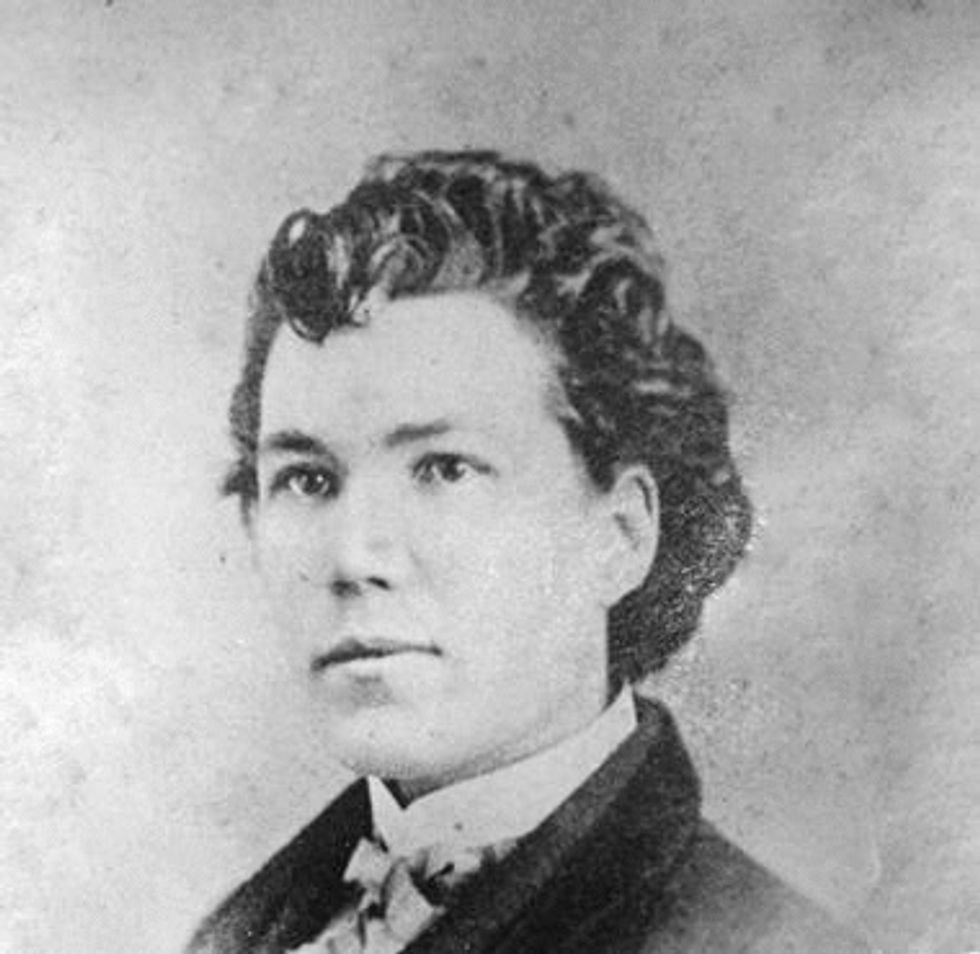
https://www.battlefields.org/learn/biographies/sarah-emma-edmonds
Edmonds escaped a life of abuse in Canada to become a nurse in the Civil War. She was instrumental in the victories of many battles and often disguised herself as a man for espionage. Read her story here.
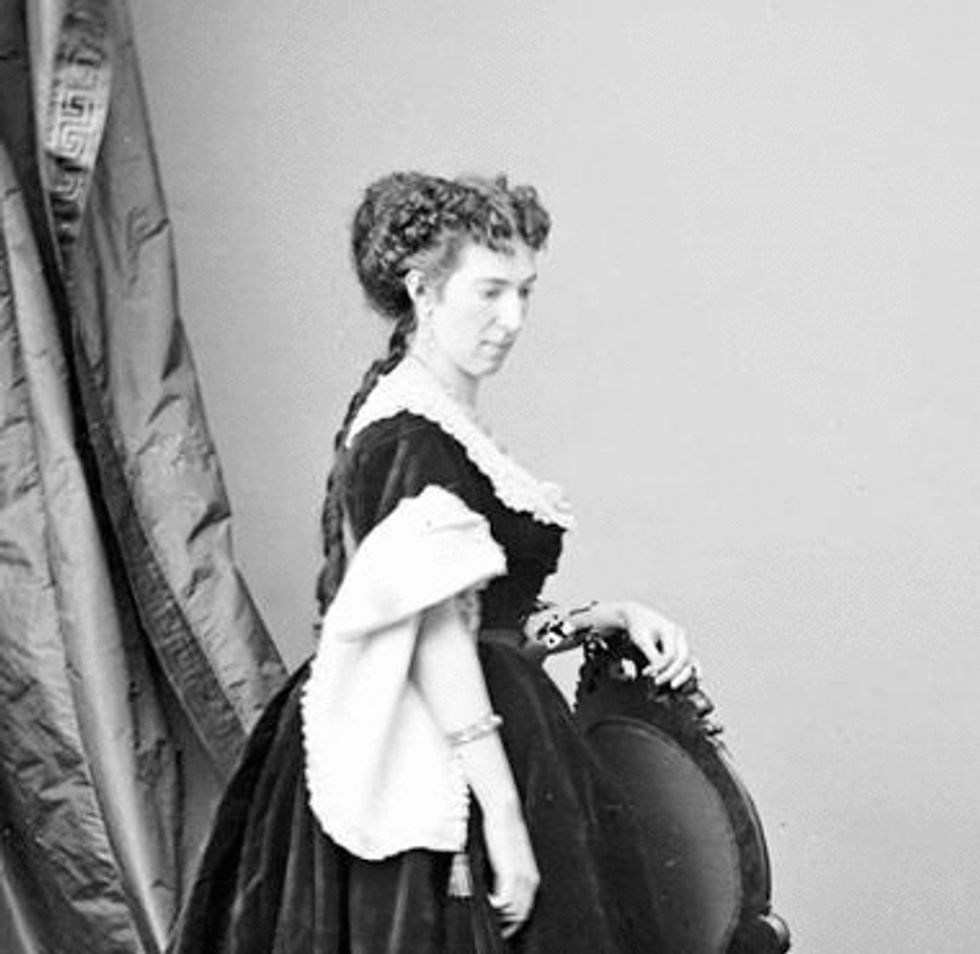
https://www.battlefields.org/learn/biographies/maria-belle-boyd
Boyd was another woman who was influential in the war's efforts, but for the Confederate effort. Her nickname was "Cleopatra of Secession." When a Union soldier invaded her home and assaulted her mother, Boyd shot and killed him. She was acquitted for the crime and then began work as a spy. She operated out of her father's hotel and provided useful information to General Stonewall Jackson, which helped secure many Confederate victories. Read more of her story here.
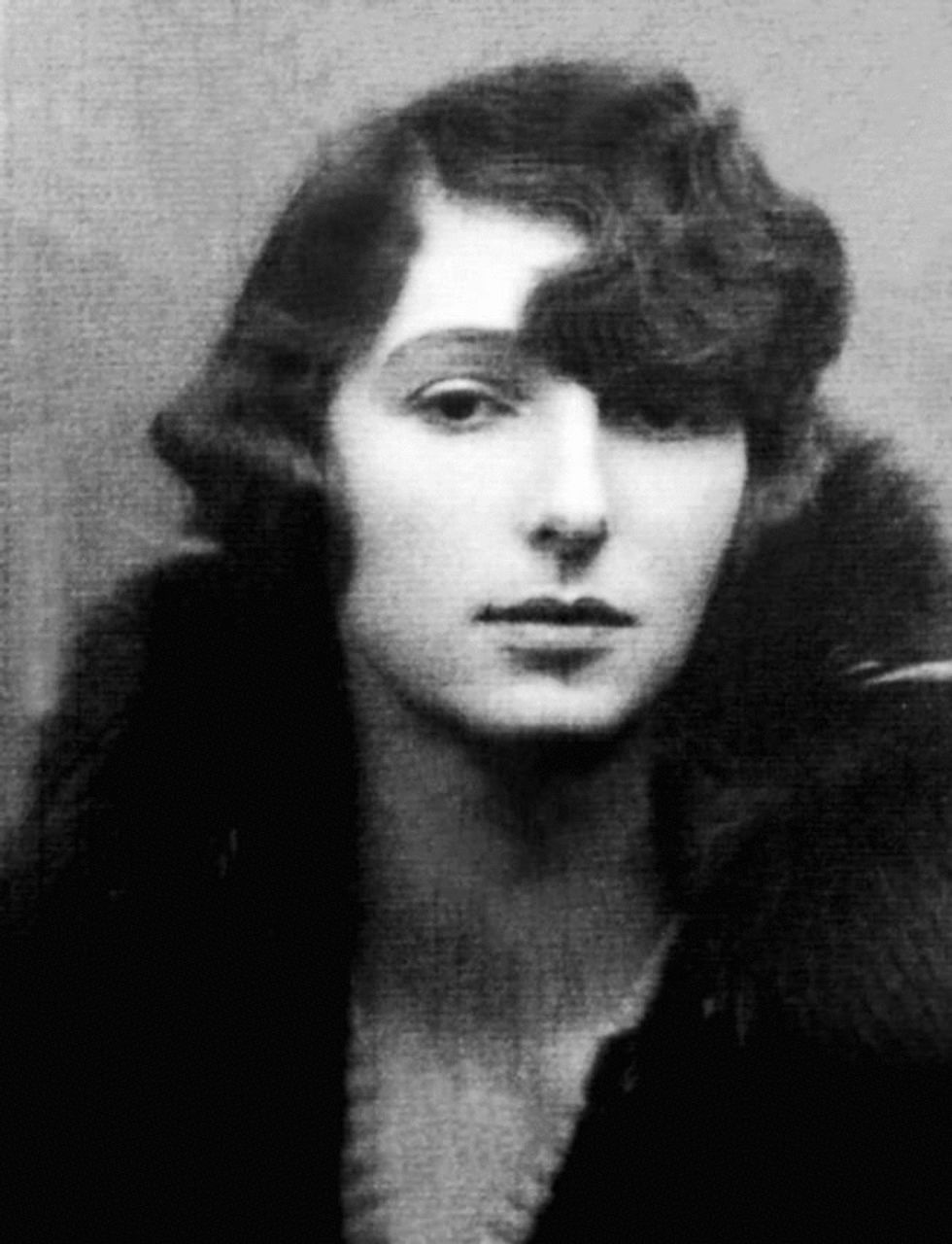
https://voxpopulisphere.com/2018/01/14/christine-skarbek-countess-krystyna-skarbek-resitance-personified/
Christine Granville was Britain's first female special agent of WWII. She was fierce and refused to let anyone or anything slow her down. She convinced her interrogator she had TB by biting down on her tongue and drawing blood. When she was stopped by German soldiers, she raised her arms to reveal two grenades, pin withdrawn, the soldiers fled in fear. Granville became well known and her stories live on. Ian Fleming, creator of James Bond, named the first "Bond girl" Vesper Lynd after Granville. Read more of her story here.
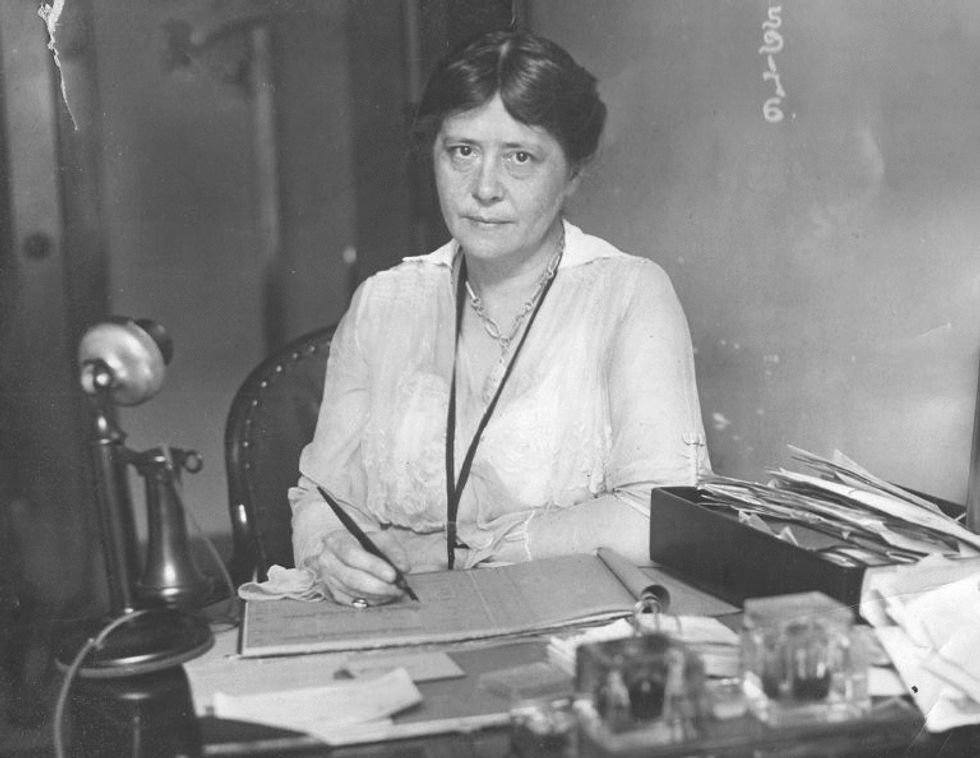
http://www.thehistoryreader.com/modern-history/grace-humiston/
Lawyer, detective, and the first woman U.S. Attorney. Grace Humiston's specialty was finding missing people, she always picked up where the police left off. Read more about how she solved mysteries here.
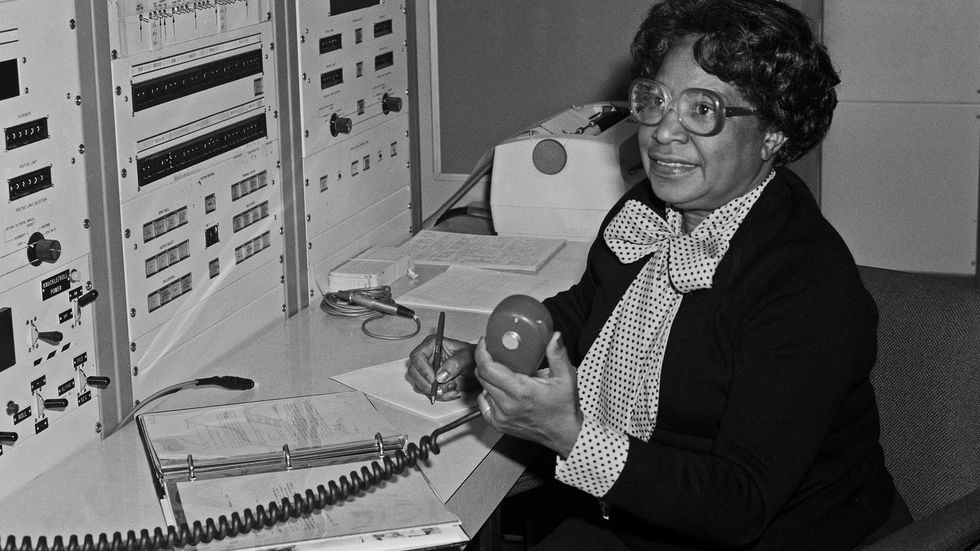
Mary Jackson
https://www.npr.org/2016/12/16/505569187/hidden-figures-no-more-meet-the-black-women-who-helped-send-america-to-space
Katherine Johnson, Dorothy Vaughn, and Mary Jackson were three black mathematicians who were essentially human computers. Their calculations were integral in putting Neil Armstrong on the moon, and ultimately helping America win the space race. Their achievements became well known through the movie 'Hidden Figures.' Read more of their story here.
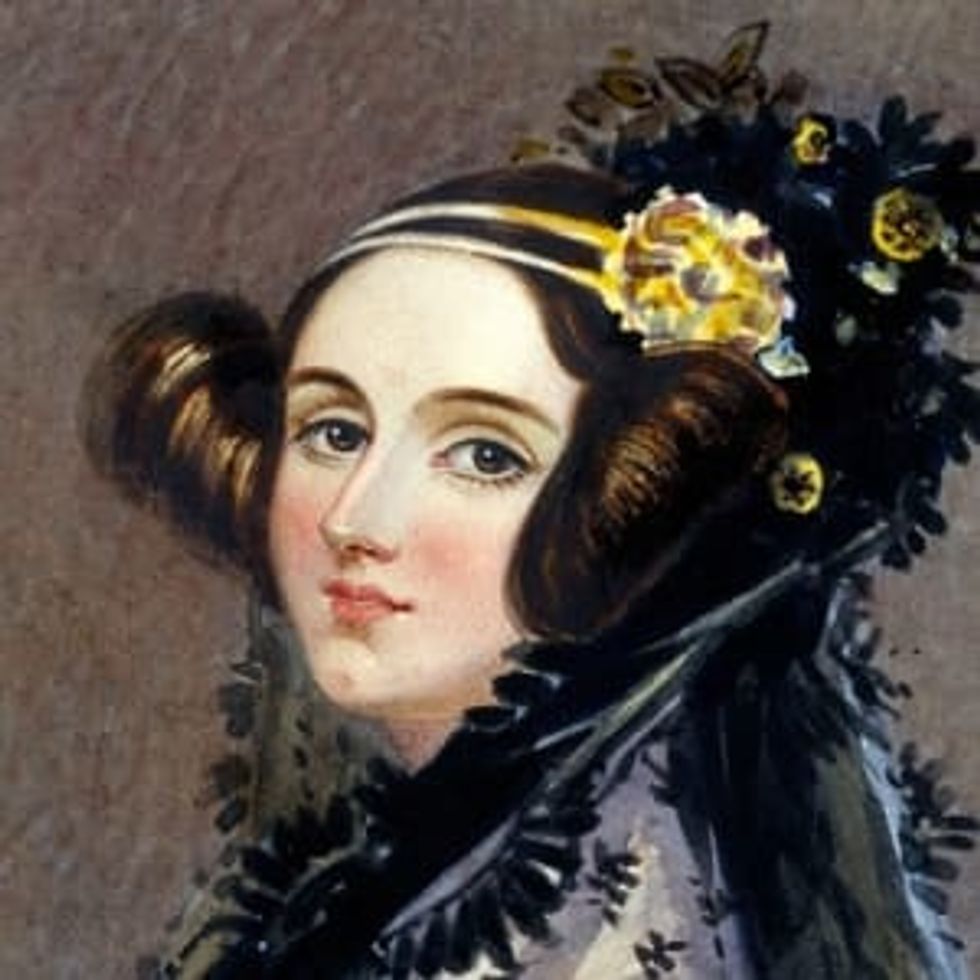
https://www.biography.com/people/ada-lovelace-20825323
The daughter of Lord Byron, Ada Lovelace was a mathematician and computer programmer. She is believed to have written the first instructions for a computer program. When she was asked to translate an article written about the analytical engine, she added in her own notes which turned out to be longer than the article itself. In her notes, Ada described how codes could be created for the device to handle letters as symbols. She also theorized a method for the engine to repeat a series of methods, a process computers use today called looping. Her work was not discovered until the 1950s. In 1980, the U.S. Department of Defense named a computer language "Ada" after her. Read more of her story here.
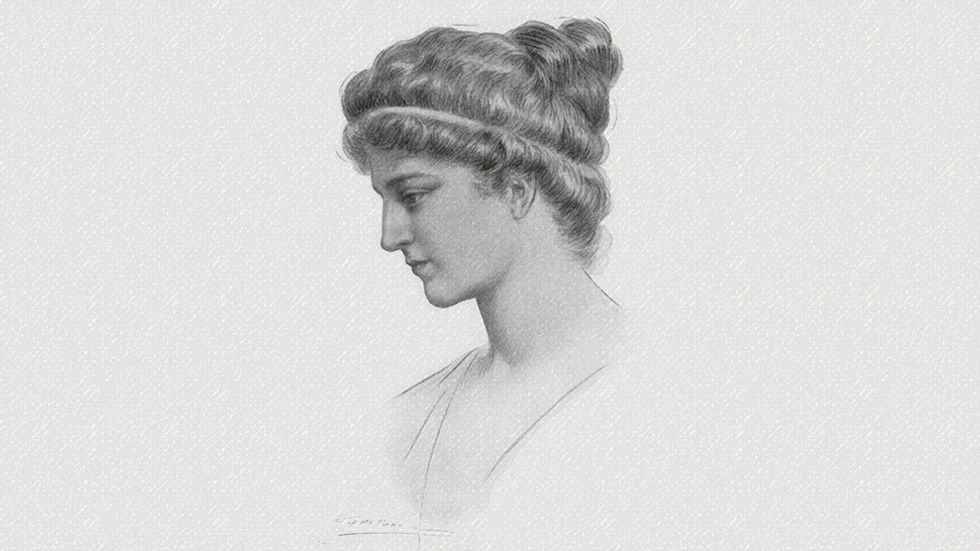
https://amysmartgirls.com/hypatia-of-alexandria-meet-the-first-famous-female-scholar-906cde17cba8
Hypatia was a female philosopher and mathematician who lived in AD. She was an extraordinary woman who led the life of a respected teacher at the University of Alexandria. She died a tragic death when a Christian mob burned her body. Hypatia paved the way for women in education centuries before and was seen as a symbol of the waning classical culture. Read more of her amazing story here.
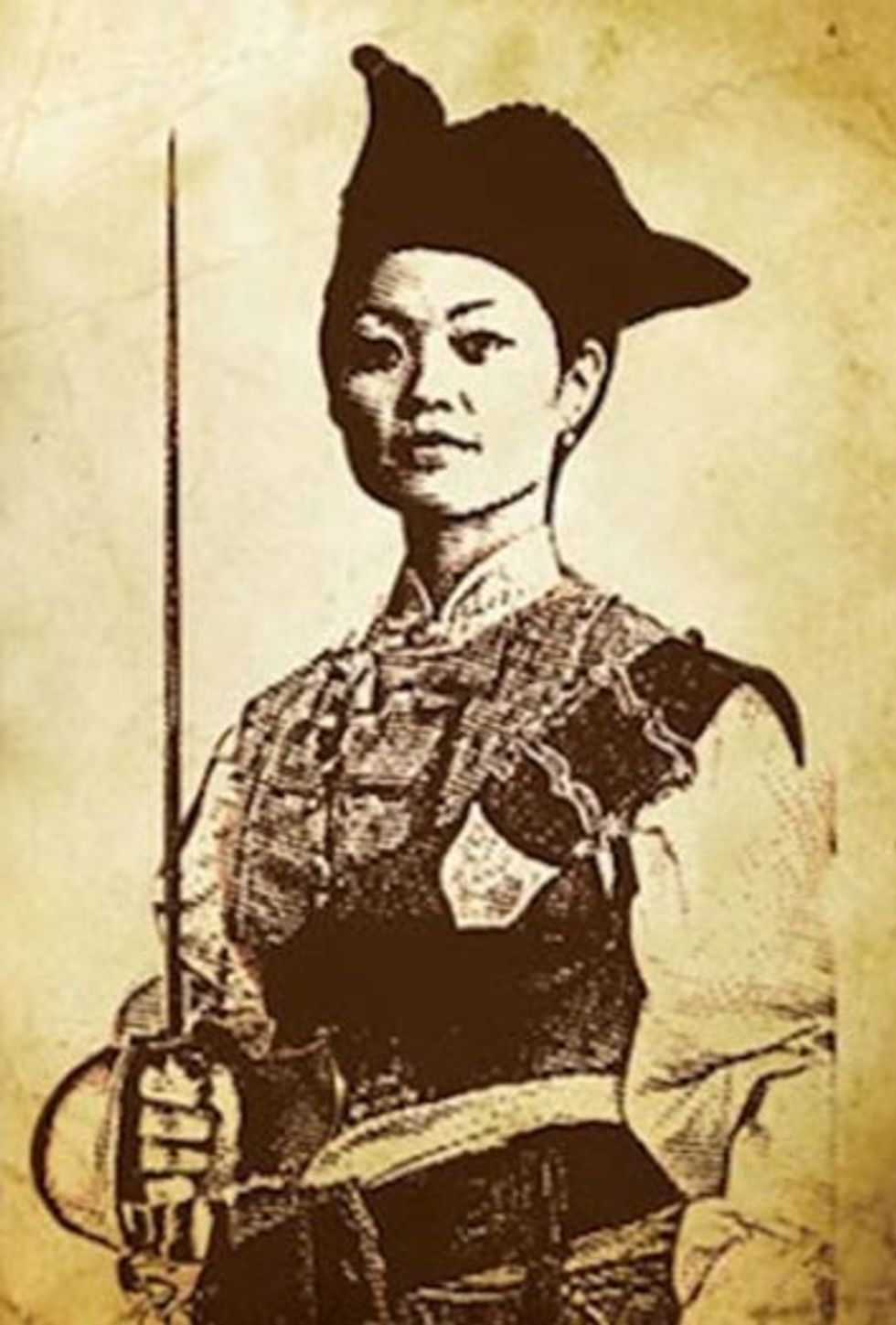
https://www.ancient-origins.net/history-famous-people/ching-shih-prostitute-pirate-lord-002582
The most successful pirate of all time was... a woman. Madame Zheng commanded 1800 vessels, made enemies of several empires, and still lived to old age. She went from prostitute to pirate, operating without the support of any government, her and her husband were indeed pirates to be feared. When her husband died, she took over his post and kept order by ruling with strict military discipline. Watch the rest of her story here.
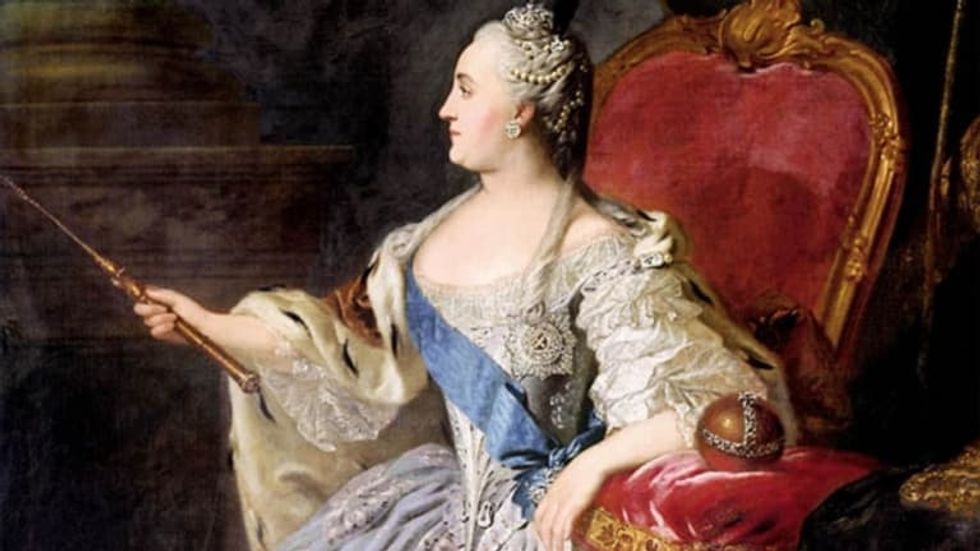
https://www.history.com/news/8-things-you-didnt-know-about-catherine-the-great
Born Sophie of Anhalt-Zerbst, she was Empress of Russia and would become the country's longest female leader. During her reign she extended Russia's borders southward and westward, adding territories which included Crimea, Belarus, and Lithuania. The Russian empire thrived under her reign and her impact is felt even to this day. She was a patron of the arts and amassed quite a collection which now sits in the Hermitage museum.
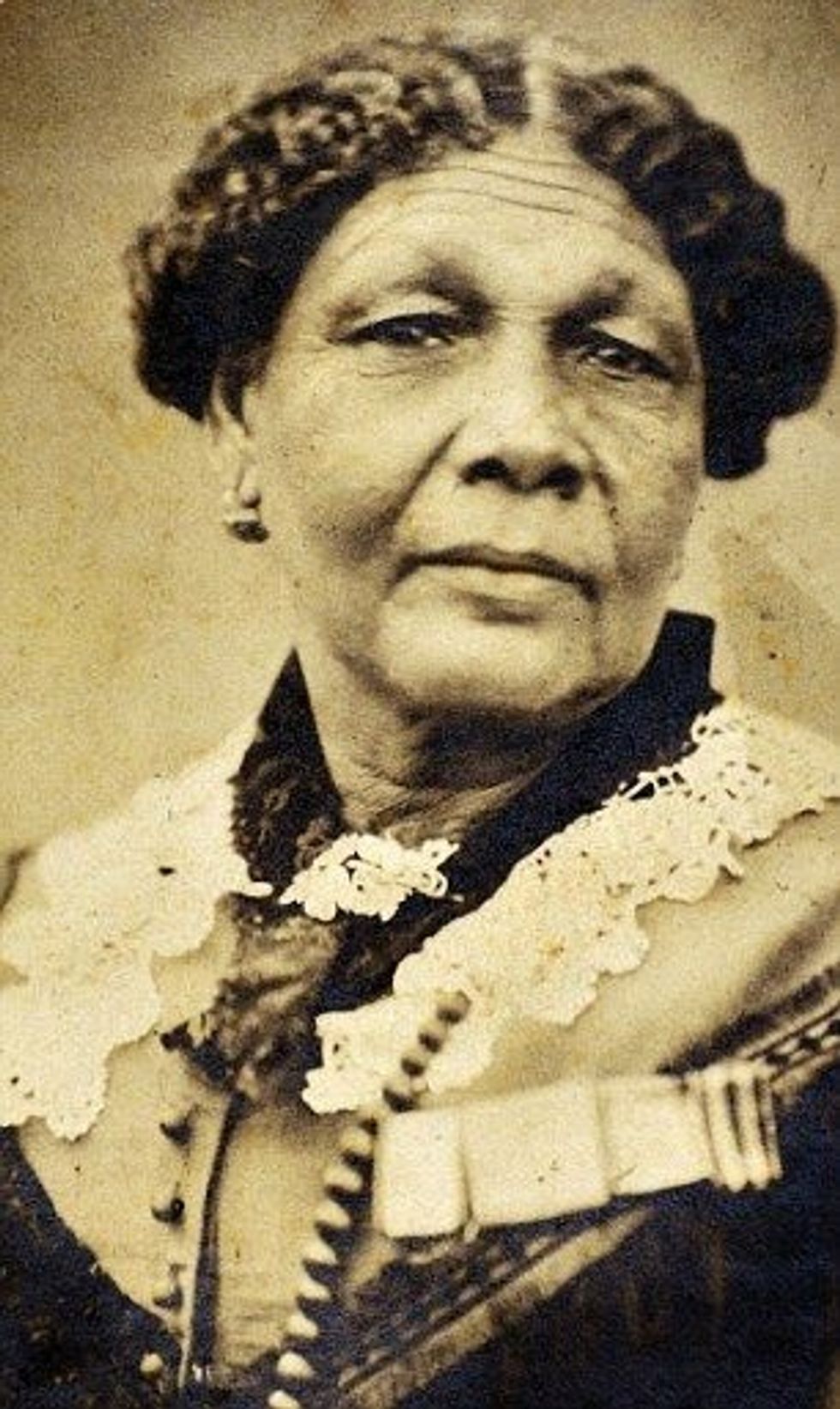
https://www.pinterest.com/pin/64317100903992242/?lp=true
Born in Jamaica, Mary Seacole would become a pioneer nurse and heroine of the Crimean war. She was not only a woman, but of mixed race, and thus overcame a double prejudice. After her husband's death, Seacole traveled to other parts of the Caribbean, such as Cuba, Haiti, and the Bahamas. On these trips she complemented her knowledge of traditional medicine with that of modern, European medicine. She traveled to England in 1854 and approached the War Office, asking to be shipped out to Crimea where she knew she could help with poor medical facility conditions. She was refused. She funded her own trip to Crimea, where she established the British Hotel near Balaclava to provide an additional health facility to wounded soldiers. She also visited the battlefield on numerous occasions, under fire, to provide on-site medical care to wounded soldiers. After returning home ill, she wrote an autobiography, 'The Wonderful Adventures of Mrs. Seacole in Many Lands."
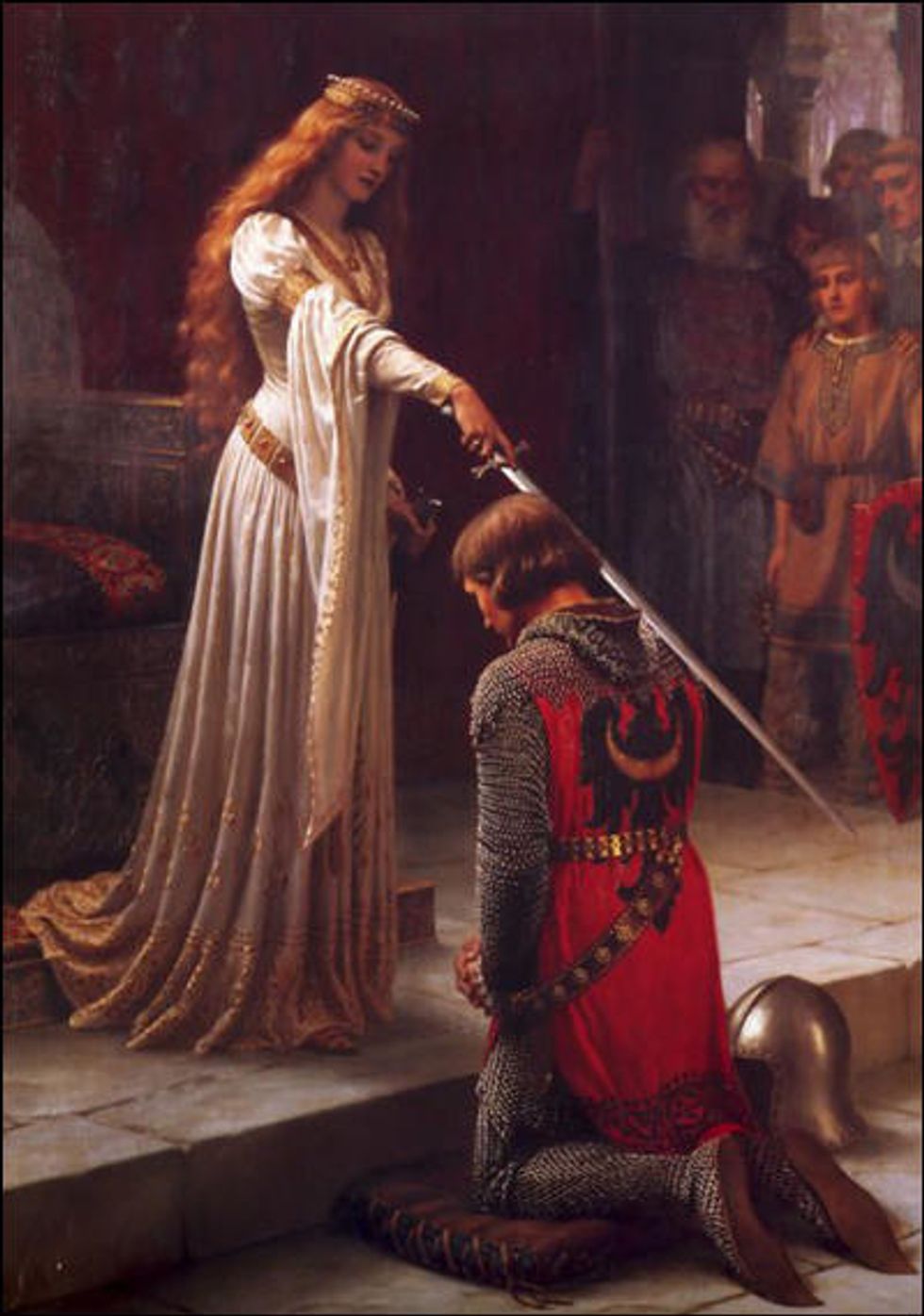
https://spartacus-educational.com/Eleanor_of_Aquitaine.htm
The most influential figure of the Middle Ages, Eleanor of Aquitaine was the most sought after bride in her generation at the age of 15. She inherited the throne to France and within two years of the annulment to her first husband, she remarried and became the queen of England. Then separating from her second husband, Eleanor moved into Poitiers to establish the Court of Love, where she is reputed to have encouraged a culture of chivalry among her courtiers that had a far-reaching influence on literature, poetry, music, and folklore. The court attracted artists and poets and housed many troubadours and writers to promulgate through the arts. Imprisonment would take her away from the Court of Love. Eleanor spent her remaining years in prison, and then reacquiring the role of Queen on many occasions. Read more here.
Spending time alone can increase concentration and personal productivity.
As most busy college students can relate, it seems as though I find myself constantly surrounded by people. Whether I am in class, at sorority events or simply going out with friends, I rarely encounter any downtime. Surely there is no better feeling than being productive as you spend your time with those who mean the most to you, but you barely have a moment alone with your own thoughts. Oddly, though, a minute at peace with myself is all that I have been craving in recent days. At one time, being alone was an idea I used to dread. Yet, I have come to realize the importance of solitude.
More often than not, we become so engaged in our schedules that we do not designate the time to reflect on our emotional well-being. As the stresses of everyday life seem to heighten with each new assignment or delegated task at work, we forget that we must check up on ourselves. It is evident that spending time with friends and family is necessary, but spending time alone is also crucial. Whether it involves going for a walk, watching a favorite television show or relaxing with a glass of wine every now and then, the importance of spending time alone is a fact of life that will never change. After spending as little as 10 to 15 minutes in solitude each day, studies have shown that this time has correlated to increases in concentration and personal productivity. In addition, it is recommended that one should schedule times to do things by themselves, for themselves, throughout the course of the week in hopes of developing a better relationship with oneself.
The statement "everyone needs someone" is non-negotiable. Though, overall, we also need to be able to rely on ourselves. Developing a continuous dependency on others to occupy our time is an unhealthy way of life. We must value the importance of spending time alone so that we may become the best versions of ourselves possible.
Didn't realize that not drinking coffee in the morning would be a proud moment, but it is.
They see me as a happy person. I see the world optimistically but recently it has changed.
Sometimes, I lose my mind with school-related problems. I get lost. I feel fear, anxiety, and stress. I feel overworked, and symptoms of it signed off my vulnerability and weakness. I'd look at the culture of heavy workloads mixed with extracurricular activities and think "if they can do it, then so can I!" But this stopped being my go-to motto because, to be honest, I was developing an unhealthy lifestyle (sorry, mom whoops). I wasn't eating enough. I wasn't sleeping enough. I felt drained out that I didn't feel like myself. The energy I dearly took care of was suddenly not there for me.
Knowing that I was draining myself out was one thing. Doing something about it was another.
It was intimidating having to "give up," but was it really giving up- or was it advocating for myself? I say the latter. Be proud of taking care of yourself.
Be proud of the small moments.
Be proud of practicing dance routines that you struggled with the first time you learned it. Be proud of saying "love" and meaning it. Be proud of the friendships that made you laugh, wholesome, drunk, and overall incredibly happy. Be proud of the parents who would cut up an apple into wedges and give them to you as a study snack. Be proud of learning from failure.
Everyone goes at their own pace, something that my friends have told me time and again. It's hard to accept it because we all just want to get to the finish line, but aiming for the prize would make us forget the journey. Yes, be proud of the big accomplishments, but why limit yourself to the prize? They say to go "infinity and beyond," and I think you should. Going there with your mind appreciates the goodness around us, like seeing the billions of stars at night. It makes the small things matter the most.
We have the capacity to think and learn. To believe and to do. To have faith and to be patient. To feel inspired. To dream.
So, "don't just fly, soar!" (Disney).
It's hard being a college student and loving Christmas at the same time.
Why do I love Christmas?
Christmas has always had a special meaning to me. Growing up, I was always sensitive, getting upset over small issues and always misbehaving at school. That made my childhood very difficult. But when it was December, I was always so happy to celebrate the holidays. Everyone in my family was in a good mood. Family friends would visit and the idea of togetherness and happiness would bring everyone joy, especially me. I love Christmas because it makes me want to be a better person not only for myself, but for the people in my life that have always supported me and showed nothing but love to me. Christmas means everything to me, well, it still does, but not as much as it used to. Unfortunately, as you get older things change.
Why are things different?
After going to college and maturing through the years, time started to move faster for me. When in college, you spend so much time focusing on stuff like grades and finding internships that you almost lose sight of your social life and personal joys. During most of my college life, I've been working on bettering myself for my own well being. Unfortunately, it also took up a lot of my time. I felt like I was back in my introvert phase because I didn't feel like going out or talking to anyone because I was so worn out and tired. As for Christmas, I wasn't as excited for it as I used to be. I used to love Christmas a lot. Now, it's more like, "I have nothing against Christmas", which saddens me because I miss the feeling of Christmas joy and the hype. I guess as time flew by, Christmas felt like it came quicker than expected and I didn't have the energy or time to do any festivities. Overall, I will always love Christmas. I just don't know if it will ever be the same for me.